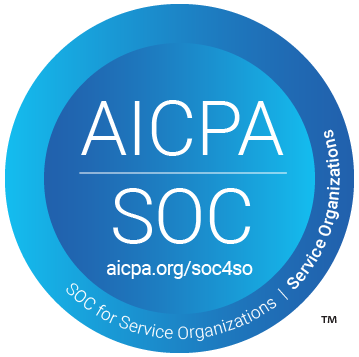Melissa Data Quality Platforms
Melissa's Full Spectrum DQ Approach. Learn MoreMelissa Data Quality Tools
Verify, correct & cleanse contact data in 240+ countries.Melissa Identity Verification
Increase compliance, reduce fraud and improve onboarding. Visit Identity Verification SolutionsMelissa E-Commerce / CRM
Improve customer onboarding, marketing & fulfillment.Melissa Enrich
Gain insight into who and where your customers are.Melissa Industries
See how Melissa's solutions work across industries.Data Hygiene
Keep your mailing list up-to-date, qualify for postal discounts & reduce UAA mail.Data Enhancement
Enrich your consumer or business records for greater insight & omni-channel marketing success.SaaS
Clean and update your data in the cloud, no software to maintain.Verify & enrich your records with multi-sourced, authoritative reference datasets.
PEP & Sanctions Screening
Smart, Efficient Screening with Comprehensive Sanctions, PEPs, Adverse Media and other International Watchlists.
Compliance often involves multiple departments and business applications, disparate customer and vendor databases, to avoid violations, costly fines, penalties, you need to have a comprehensive view of compliance across your enterprise.
What We Do
Real Time AML Risk Checks
Melissa Identity Verification provides our real time AML risk database of PEPs (Politically Exposed Persons) Sanctions and International watchlists to consolidate screening and too easily integrate with your existing technology infrastructure.
- Faster customer onboarding with real-time screening
- Screen Individuals against Politically Exposed Persons (PEPs), Adverse Media and other International restricted party watchlists.
- Better remediation by eliminating unnecessary “false positives”
-
- Easy compliance with regional and International Sanctions, AML/CTF regulations including the EU’s Sixth Money Laundering Directive (6AMLD), U.K, U.S & other Country Bank Secrecy Acts, Patriot Acts and other international legislation.

How PEP & Sanction Screening Works
1. Choose which types of risks you want to screen for
Choose for our proprietary AML data feed which includes comprehensive sanctions, adverse media and other international watchlists. See our full list below.
2. Run your Search
You can easily tailor our AML screening tool to your risk based approach and will leverage intelligent fuzzy matching to handle transliteration, synonyms, aliases, misspellings, and advanced name matching to reduce false positives.
3. Review matches and mange cases
Seamlessly sync our AML screening tool with your internal systems too review potential matches quickly and easily.

Defining a Politically Exposed Person
A Politically Exposed Person includes heads of state or government, senior politicians, judicial or military officials, and close associates/family members of the Politically Exposed Person. Governing bodies like the Financial Action Task Force (FATF) have set out AML guidance for the following 3 classifications of a Politically Exposed Person (PEP)
Foreign PEP
This includes individuals entrusted by functions by a foreign country such as heads of state or government, senior politicians, judicial, military officials, senior executives, and important party officials.
Domestic PEP
This includes individuals that have been entrusted with prominent domestic public functions like heads of state or government, politicians, judicial, military officials, and executives of senior status.
International PEP
This category refers to persons who are entrusted with prominent functions by international organisations such as members of senior management e.g., board of directors, deputy directors and equivalent functions.

Why is PEP Screening Important?
PEP screening is a process used by banks and other financial institutions during client onboarding as part of their Identity Verification and Know Your Customer (KYC) initiatives. Since there are potential risks in doing business with politically exposed persons, financial organisations must have a system in place to assess and mitigate those risks. This is where Customer Due Diligence (CDD) comes into play. CDD or KYC policies are essential in building an effective Anti-Money Laundering (AML) program. By properly assessing a customer’s risk prior to onboarding, financial organisations can apply the preventive measures necessary to protect the organisation and politically exposed person’s business relationship.

Single, Batch Scan & No Code Features
Single Scan
Through our single scan feature, individuals and entities can be checked against global PEPs, sanctions and other global watchlists. The results returned provide a wealth of information that will aid in the onboarding and due diligence processes for new or existing customers.
Batch Scan
Melissa’s PEP screening service also has the capability to batch scan, helping businesses save time during the onboarding process by simultaneously checking a large number of individuals.
No Code
Melissa’s PEP & sanctions screening tool now comes in a no code, out of the box service which takes out the hassle of integration and lengthy set-up procedures. Just simply create an account via our online portal and gain instant access to our PEP & sanctions screening tool, as well as Melissa’s other eIDV services.

Why use Melissa for PEPs and Sanctions Screening?

Simple & Easy Integration
Our AML screening tool integrations through a simple API that can easily be added to your existing technology infrastructure.

Extensive Profiling & Global Coverage
Screen individuals and organisations against global media sources that are tied to any negative information, as well as extensive PEPs, sanctions and watchlists.

Fully Customisable to Any Business Need
Different customers have different risk thresholds, which is why users can search against specific categories of media lookups, and categories can be customised for each client.

Screen Against the Most Updated Reference Data
All reference data which a user is screened against is refreshed daily in our real-time environments, so you can ensure full-scale accuracy.
Explore Our Range of Identity Verification Solutions
Melissa’s identity verification utilises a range of industry-leading services, which are flexible and designed for organisations of all sizes, to meet KYC & AML compliance needs. Our additional identity verification solutions include:
Need Help?
Frequently Asked Questions
What is PEP and Sanctions Screening?
PEP screening is a risk management practice employed by financial institutions, corporations, and other organisations to identify and assess the potential risks associated with conducting business or establishing relationships with PEPs. The screening process involves checking individuals against PEP databases or lists maintained by regulatory bodies, government agencies, or specialised third-party providers. These lists contain names of known or suspected PEPs from around the world.
Sanctions screening, on the other hand, involves checking individuals, organisations, or entities against lists of sanctioned parties or entities. Sanctions are restrictions or penalties imposed by governments, international bodies, or organisations to deter or punish certain activities, such as human rights violations, terrorism, or nuclear proliferation. Sanctions can involve asset freezes, travel bans, trade restrictions, or other punitive measures.
Why Conduct PEP and Sanctions Screening?
By conducting PEP and sanctions screening, organisations can identify and mitigate potential risks associated with money laundering, terrorist financing, corruption, or other illicit activities. Compliance with these screening processes is crucial for organisations operating in regulated industries, such as financial services, to maintain integrity and prevent involvement in unlawful or unethical activities.
PEP and sanctions screening play a critical role in ensuring the integrity and security of the global financial system. By identifying and preventing transactions involving high-risk parties, financial institutions and businesses can contribute to the fight against financial crime and maintain a safe and compliant environment for their operations.
When Should You Conduct PEPS and Sanctions Screening?
PEP and sanctions screening should be conducted at various stages of business relationships or transactions to ensure compliance and mitigate risks. some common scenarios when PEP and sanctions screening should be performed are during the customer onboarding stage, ongoing due diligence, employee screening, mergers and acquisitions, third-party relationships, and regulatory compliance.
Conducting PEP and sanctions screening is an ongoing and dynamic process. Regular updates to databases and monitoring of changes in risk profiles are essential to ensure effective risk management and compliance with anti-money laundering and counter-terrorism financing measures.
Who needs PEP and Sanctions Screening?
PEP and sanctions screening is required for various types of entities and organisations, particularly those involved in financial transactions or conducting business relationships with customers or partners. The following entities typically need to perform PEPs and sanctions screening:
Financial institutions: Banks, credit unions, investment firms, insurance companies and other institutions working within the financial sector.
Money Service Businesses (MSBs): MSBs, which include money transfer services, currency exchanges, and prepaid card providers, are also subject to AML and CTF regulations. They must perform PEP and sanctions screening to ensure they are not facilitating transactions for high-risk individuals or entities.
Corporations and Businesses: Companies engaged in international trade, cross-border transactions, or industries prone to money laundering risks (e.g., real estate, luxury goods) need to screen their clients, customers, and business partners for PEP and sanctions matches.
Nonprofit Organisations: Nonprofits may also be subject to PEP and sanctions screening requirements, especially if they engage in activities involving the receipt and distribution of funds from international donors or government agencies.
Government Agencies: Government agencies and public bodies responsible for managing funds or engaging in financial transactions may also be required to conduct PEP and sanctions screening to prevent misuse of public funds.
Professional Service Providers: Professionals such as lawyers, accountants, and consultants may be required to perform PEP and sanctions screening as part of their due diligence when taking on new clients or engaging with high-risk individuals or entities.
Gaming and Gambling Entities: Casinos and online gambling platforms often need to comply with AML regulations, which may include PEP and sanctions screening, to prevent money laundering through their services.
Fintech and Payment Processors: With the rise of fintech and digital payment platforms, companies operating in this space may be subject to regulations that mandate PEP and sanctions screening.
Travel and Hospitality Industry: Businesses operating in the travel and hospitality sectors may be required to screen customers or clients for sanctions and PEPs, especially for international bookings or high-value transactions.
The specific requirements for PEP and sanctions screening may vary depending on the country, industry, and the nature of the business. Compliance with these screening measures is essential for identifying and mitigating risks associated with money laundering, terrorist financing, and other financial crimes.
How does PEP & Sanctions Screening help customer onboarding?
PEP and sanctions screening play a crucial role in the customer onboarding process by helping financial institutions and businesses assess the potential risks associated with new customers. Here's how PEP and sanctions screening help customer onboarding:
- Risk Identification: PEP and sanctions screening allow organizations to identify whether a new customer is a Politically Exposed Person (PEP) or listed on any sanction’s lists. PEPs are individuals who hold prominent public positions, and they may pose a higher risk of involvement in corrupt activities or financial crimes. Sanctions lists contain individuals, entities, and countries subject to economic and trade restrictions due to their involvement in activities threatening national security or international peace. Identifying these risks early in the onboarding process is crucial for appropriate risk assessment.
- Enhanced Due Diligence (EDD): If a potential customer is flagged as a PEP or matches a sanctions list entry, enhanced due diligence is required. EDD involves gathering additional information about the customer to understand their source of funds, business activities, and any potential connections to illicit activities. This thorough investigation helps financial institutions make informed decisions regarding the customer's suitability for onboarding.
- Regulatory Compliance: Conducting PEP and sanctions screening is a regulatory requirement in many jurisdictions. AML and counter-terrorism financing regulations mandate financial institutions and businesses to perform these screenings as part of their customer due diligence measures. By complying with these regulations, organisations demonstrate their commitment to fighting financial crimes and maintaining a safe and compliant environment.
- Preventing Reputational Damage: Onboarding a customer with a PEP or a sanctioned entity could lead to severe reputational damage for the organization. Customers, partners, and stakeholders may lose trust in the institution's ability to conduct business responsibly. PEP and sanctions screening help mitigate this risk by preventing potentially harmful associations.
- Mitigating Financial Crime Risks: By identifying and screening high-risk individuals and entities during the onboarding process, financial institutions can mitigate the risks associated with money laundering, terrorist financing, and other financial crimes. This protects the institution from unknowingly facilitating illicit activities through their services.
- Improving Efficiency: Automated screening tools and databases enable quick and efficient PEP and sanctions screening. This streamlines the customer onboarding process, making it faster and more cost-effective while still ensuring compliance with regulations.
- Better Decision-Making: PEP and sanctions screening results provide valuable information for decision-makers during the customer onboarding process. The screening outcomes help assess the level of risk associated with the customer and determine appropriate risk management strategies, such as setting transaction limits or applying additional monitoring.
In summary, PEP and sanctions screening are essential components of the customer onboarding process. They aid in identifying high-risk customers, enabling enhanced due diligence, ensuring compliance with regulations, and protecting financial institutions and businesses from potential risks and reputational damage.






